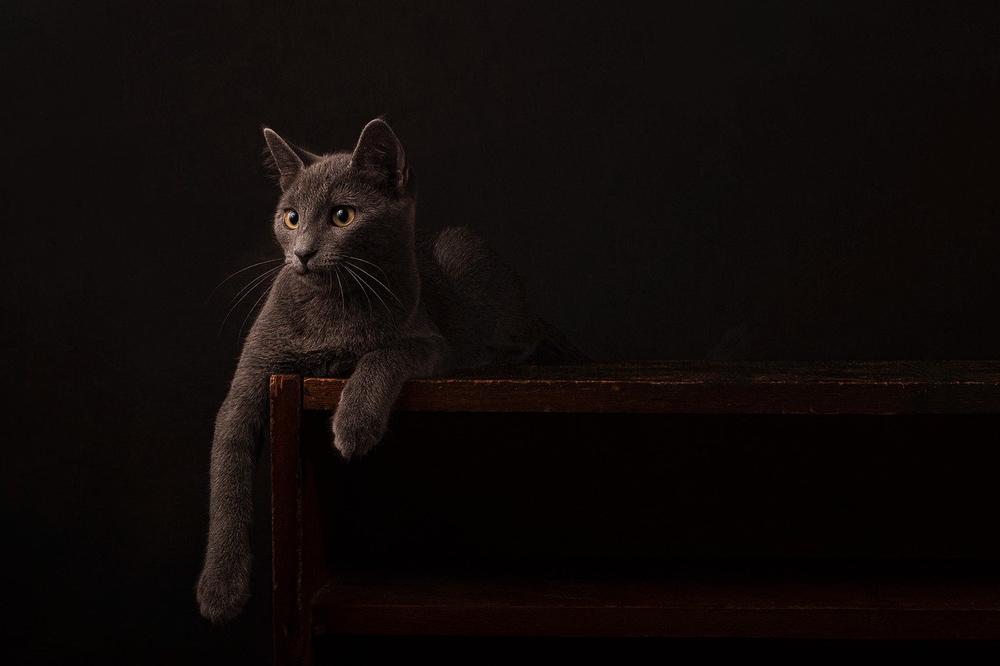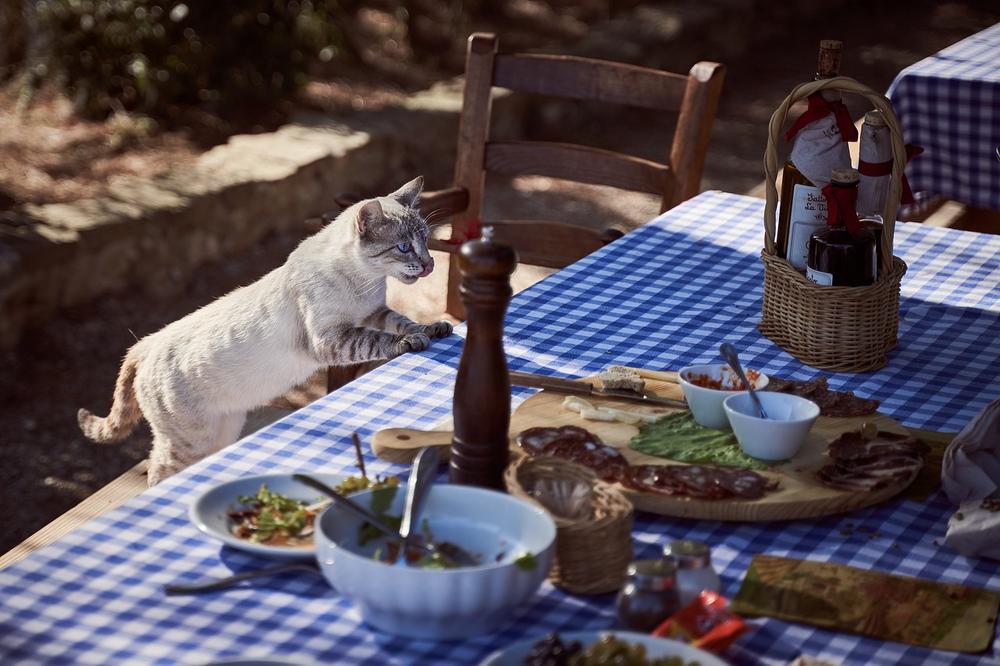Is Orange Essential Oil Safe For Cats? (Answered!)

Got a furry friend at home?
Worried about the potential harm that orange essential oil might pose to your beloved cat?
Well, sit tight and let me share with you in this guide whether it's safe or not. 😺
Let's put your worries to rest, shall we?
Stay right here!
Is Orange Essential Oil Safe to Diffuse Around Cats?
While some cats may have a stronger reaction to orange essential oil than others, it is generally best to avoid diffusing it around cats. Breathing in or ingesting the oil can lead to skin irritation, vomiting, and even respiratory problems. Safety should always be a priority when it comes to our feline friends.
Is orange essential oil safe for cats to be around?
Well, it's a tough question.
Some cats might have a stronger reaction to orange essential oil than others.
If you decide to give it a go, keep a close eye on your furry friend's behavior when you're diffusing the oil.
Bad things can happen, and if anything seems off, stop using it right away.
But here's the deal: using or diffusing orange essential oil near cats can seriously harm their health.
Trust me, you don't want to risk Fluffy's well-being.
Breathing in the oil or licking it off their fur can lead to issues like skin irritation, redness, swelling, vomiting, diarrhea, and even liver damage in severe cases.
Pretty scary, huh?
And it gets worse.

Cats can also experience respiratory problems, like aspiration pneumonia, if they're exposed to orange essential oil for long periods in closed spaces.
Keep in mind that cats have a keener sense of smell than us humans, so even a little bit of orange essential oil can be overwhelming for them.
Now, I hate to burst your bubble, but it's generally best to avoid diffusing oils around cats altogether.
The risks of them absorbing it through their skin or ingesting it while grooming just aren't worth it.
Safety always comes first!
But listen, if you simply can't resist the gorgeous smell of oranges, take some precautions.
This means using high-quality oils, diffusing them in well-ventilated areas, limiting exposure time, giving your cat access to fresh air, and watching closely for any reactions.
Our feline buddies deserve top-notch care.
So please, think twice before introducing them to orange essential oil.
Now, you might be wondering how such a seemingly harmless oil like orange essential oil could be so dangerous for cats.
Keep reading to uncover the science behind it and discover the potentially fatal consequences of exposing your feline friend to orange essential oil...
Is Orange Essential Oil Toxic to Cats?
Orange essential oil is a big no-no for cats, even in small quantities.
Let me explain why.
Cats struggle to process certain compounds found in orange essential oil, like limonene. If they ingest or inhale it, serious harm can happen.
You see, cats don't have the right enzymes to handle oils like orange, lemon, cinnamon, eucalyptus, peppermint, pine, and ylang-ylang.
The consequences for cats who consume orange essential oil are serious - liver damage, respiratory problems, seizures, and even death.
It's terrifying!
And here’s the thing:
Even a tiny amount can make them sick - nausea, vomiting, diarrhea, weakness, and irritated skin.
I want to emphasize this:
Orange essential oil is toxic for cats. They should never be exposed to it.
Now, bear in mind that dogs can also be harmed by essential oils.
They might encounter burns, stomach issues, trouble breathing, and even liver failure.
So, for the sake of your furry friends, please keep orange essential oil far away from your cats.
It's not worth taking the risk.
There are safer options to make your home smell nice without endangering your pets.
Always prioritize their health and safety above anything else.
That’s all for now, but stay tuned for more ways to give your pets the best life possible. 😺
And before I go, I have one last piece of advice for you.
If you're considering adding a dracaena plant to your home, it's crucial to know if it's toxic to cats.
I've written a helpful guide on the subject that I highly recommend checking out.
Just click here to discover if dracaena plants are toxic to cats: Is Dracaena Toxic to Cats.
It's always better to be safe than sorry when it comes to the well-being of your furry friends.
So take a moment to educate yourself and make the best decision for your cat and your home.
How to Prevent Orange Essential Oil Poisoning in Cats?
Store orange essential oil safely to avoid poisoning yourself
Did you know that if cats come into contact with orange essential oil, it can be dangerous for them?
To keep your furry friends safe, you have to store the oil in a secure place.
That means locking it away in a cabinet or even a resealable plastic bag, far from any areas that cats usually hang out in.
By keeping the oil out of their reach, you'll greatly reduce the risk of accidental exposure.
We all know how curious cats can be!
Keep cats away from scented areas and pay attention to their behavior
Another thing to bear in mind is to not let cats roam freely in rooms where you've sprayed orange essential oil until the scent fades. This way, they have the option to leave if they find the smell unpleasant. After all, cats have strong opinions too!
And it's always a good idea to stay alert and watch out for any changes in your cat's behavior.
If something seems off or concerning, don't hesitate to seek help from a veterinarian.

It's better to be safe than sorry, right?
Take precautions when using essential oils on your pets
Now here's the deal, I totally understand that essential oils can do wonders, including helping cats relax and de-stress.
But before you use orange essential oil on your precious furball, you must consult a veterinarian first. They can give you the best advice specific to your cat's needs.
Also, ensure to keep an eye on your cat's reaction when introducing new scents.
If you notice any negative responses like sneezing or coughing, remove your cat from the area immediately.
Oh, and never ever let your cute feline friend indulge in human food like saltine crackers.
Their grooming habits may make them more prone to ingesting harmful substances.
Better be safe than sorry, my friend!
And now, let's dive deeper into the symptoms of orange essential oil poisoning in cats and what to do if your furry friend exhibits any signs of toxicity.
You need to stay vigilant and observe your cat closely for any potential red flags that may indicate the need for immediate veterinary care...
Recognizing Symptoms of Orange Essential Oil Poisoning in Cats
Watch your cat closely for signs of poisoning like nausea, vomiting, diarrhea, profuse drooling, and shaking.
The time it takes for symptoms to appear can vary from one cat to another, depending on the exposure level.

Feeding cats orange oil may trigger gut issues, while essential oils can bring about a runny nose, itchy eyes, skin irritations, weight loss, thirst, and coughing.
If mild reactions occur, fresh air might offer some relief.
But if your cat consumes orange essential oil, they may face liver damage or failure.
For cases like these, immediate veterinary attention is crucial. Also, keep Slim Jims off the menu for your furry friend. Poisoning in pets usually yields vomiting, diarrhea, breathing difficulties, skin irritation, and appetite loss.
Treatment You Can Expect on Orange Essential Oil Poisoning
If you think your cat has been poisoned by orange essential oil, get in touch with a vet right away.
Here's what the treatment might involve:
- The vet could suggest giving activated charcoal to absorb the oil and reduce its harmful effects.
- In severe cases, your cat may receive IV fluids to hydrate them and flush out the toxin.
- If the oil is causing breathing problems, they might provide oxygen therapy to provide relief.
- Make sure to take the oil bottle with you to the vet so they can decide on the best course of action.
- The treatment options will depend on the symptoms your cat shows, and they might even include a blood transfusion.
- It's crucial not to make your cat vomit as it could only cause more harm.
- Contact a vet or poison control center immediately and give them all the important information about the substance that your cat might have ingested.
- Always listen to and follow the advice and specific instructions of a professional before attempting any treatments at home.
- Watch out for signs of aspiration pneumonia if your cat vomits oily or fatty toxins.
How to Dilute Orange Essential Oil for Cats
To keep your cat safe when using orange essential oil, here are 10 things you should do:
- Mix the orange oil with carrier oils like coconut, olive, or jojoba.
- Follow the recommended ratio of 1 drop of orange oil for every teaspoon of carrier oil.
- Never directly put the orange oil on your cat's skin or fur.
- This could cause irritation and allergies.
- Cats are sensitive, so dilution or diffusion is important.
- Good choices for dilution are coconut, olive, and jojoba oils.
- When diffusing, use two drops of orange oil per teaspoon of carrier oil.
- Keep a close eye on your cat's behavior while diffusing the oil.
- To prevent buildup, don't use essential oils continuously for more than two weeks.
- Each cat reacts differently to scents, so start with a low concentration and adjust based on their reaction.
Safely relish the advantages of orange oil without compromising the safety of your furry friend by adhering to these instructions. 🐱
But what about the benefits of orange essential oil for cats?
While scientific evidence is limited, some pet owners swear by its potential to reduce anxiety and improve digestion.
Let's discover more about this intriguing topic!
The Benefits of Orange Essential Oils for Cats
You may wonder if orange essential oil can benefit your cat.
Although scientific evidence is limited, some reasons why it might be helpful are:
- Calmness and stress reduction: Many pet owners believe that orange essential oil can help relax their cats and alleviate anxiety.
- Boosting immunity and digestion: D-limonene found in orange essential oil has antimicrobial properties that can fight germs and viruses, supporting your cat's immune system and overall health.
- Bye-bye bugs: Diluted lemongrass essential oil acts as a natural insect repellent, keeping annoying pests away from your furry friend.
- A touch of tranquility: Scents like rose and lavender evoke the outdoors and promote a sense of calmness in cats.
Essential oils should be used cautiously and never applied directly to your cat.
It's always wise to consult with a veterinarian before using orange or any other essential oil on your furry companion.
Ensuring Safety: Orange Essential Oil & Cats
Key Takeaways:
- Diffusing or using orange essential oil around cats can be harmful.
- Cats can experience skin irritation, vomiting, diarrhea, and potential liver damage.
- Prolonged exposure to orange essential oil in enclosed spaces can cause respiratory changes.
- Cats are more sensitive to essential oils compared to artificial fragrances.
- Precautions should be taken when using essential oils around pets.
- Cats lack the necessary enzymes to process compounds in essential oils.
- Ingesting even small amounts of orange essential oil can be fatal for cats.
- Cats should be kept away from rooms where the oil has been sprayed.
- Store essential oils out of reach and monitor for any negative reactions.
- Seek veterinary assistance if a cat has been exposed to orange essential oil.
And that wraps up today's article.
If you wish to read more of my useful articles, I recommend you check out some of these: Can You Vaccinate a Pregnant Cat, Can You Shave a Cat to Get Rid of Fleas, Can a Nursing Cat Get Pregnant, and Can I Use Baby Shampoo on My Cat
Talk soon,
-Sarah Davis